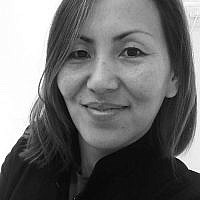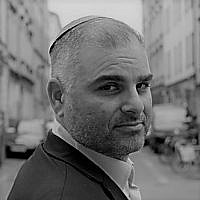The Ultimate Guide to Hebrew Learning in Israel
People ask me how I managed to learn Hebrew so fast. I tell them that I don’t know, whether two years is a short period to learn Hebrew from scratch. But I do manage to communicate with my hairdresser and tell jokes to my Hebrew-speaking co-workers.
Like any language, you need a lot of time and motivation to learn Hebrew. You need to develop a study routine, immerse yourself in day-to-day life in Israel and be patient. Your motivation should be a desire to integrate into Israeli society, get a good job, and become an independent and capable citizen of this country, right?
Yes, it is definitely true that you can manage speaking English, Russian or Spanish here in Israel but it will significantly limit your social life and job opportunities. After all, you will never get the taste of the real Israel.
I wrote this ultimate guide based on my own experience of learning Hebrew from scratch. It will give you 5 ways to develop a study routine and set a clear strategy for learning the language. I’ve also included links to informative websites and active social media groups for Hebrew learners in Israel.
Ok, let’s begin.
- Go to Ulpan
If you plan to learn Hebrew, you must have heard about Ulpan. It is a Hebrew language school for adult immigrants in Israel which is designed to teach you the basic language skills of conversation, writing, and reading comprehension. Most big cities in Israel have several Ulpan programs.
The full list of government-subsidized schools can be found at the Ministry of Immigration and Absorptions site.
I recommend starting with intensive five months course. It will help you to learn the alphabet, get to know basic grammar and communicate simple daily needs like going to a bank, buying grocery, paying bills, etc.
If you are in Haifa, there are two well-known ulpans — Ulpan Aba Hushi and Ulpan Etzion-Carmel. Etzion is known to attract more young people with an academic degree and under the age of 35. It makes the learning more dynamic and exciting.
The Aba Hushi Ulpan, which I attended myself, has an excellent methodology and highly-trained staff. However, the facilities are old, and the groups’ dynamic is slow because of the age of the participants. Many learners miss classes and teacher can go over the same material over and over. The five months course for tourists costs 4000 NIS. Olim hadashim study for free, check with local Jewish agency.
- Take a Temporary Job or Volunteer in Hebrew Speaking Environment
The secret is to go for any job. Whether it is a price tagging in the local supermarket, shampooing job at hairdressers, looking after babies in the kindergarten or washing glasses in the bar — go for it. Treat it like an Ulpan where you get paid for learning. Just remember, it is temporary, and one day — good Hebrew will get you to the dream job.
Many of my female immigrant girlfriends, including me, have worked as assistants to school teachers, social workers or caregivers for the sake of learning Hebrew. Kids are best teachers of Hebrew. I know it from my own experience. You ask me how one gets this kind of work with primary Hebrew — locals, veteran immigrants, tend not to choose this work, so employers are willing to take anyone who shows up. Doing even low qualified half-day job in the language environment will motivate you to talk your needs and hear more Hebrew. Volunteering can also be an option. Many schools in Israel need English speaking volunteers due to the lack of English teachers and social workers for kids with special needs.
- Find a Private Teacher or Language Exchange Partner
Ok, so can talk to your doctor, negotiate at the supermarket, read the street signs, but you feel like it is not enough. Don’t get discouraged — you’re now ready for the next stage.
There are a few organized evening courses for advanced students. Again, it is a matter of waiting for the formation of the group. The school can keep you waiting until the group has enough people to start. If you do not have time to wait, reach out to local immigrants’ social groups and ask for contacts of private Hebrew teachers. The prices for individual teachers vary from 80–120 NIS per hour. You can try to find two or three other students and negotiate the price with the teacher.
Each big city in Israel has groups on Facebook, that start with a word “Secret …” plus a name of the relevant town. In my case, it was Secret Haifa, where I found my private teacher. You can get recommendations and referrals on the quality of the teaching. Always ask for a trial lesson first.
If you can’t afford a private teacher, go for a language exchange. For example, you can teach English to a local Israeli student and in return get Hebrew help. I practiced it with young people I found through social media. Again you can try one of these “secret” groups on Facebook. English is in high demand among Israeli students.
- Talk, Listen and Read Hebrew at Any Occasion
Israelis like to put loud music and watch TV — do not miss a chance to do the same. Songs with catchy words like אין לנו איביזה — (ein lanu Ibitsa), מתנות קטנות — (matanot ktanot) can do magic in remembering new words and language constructions.
Also, don’t forget to practice your reading. Hebrew is a unique case because it’s a very ancient language — it’s the original language in which the Bible (Torah) was written. Well, no need to read Torah, you can read children’s books. They are simple and often come with diacritical signs used to represent vowels or distinguish between alternative pronunciations of letters of the Hebrew alphabet.
- Invest Time and Money to get Professional Hebrew
Next stage is to advance your Hebrew for professional life or a degree from a local university. In such case, check international schools within your local universities.
All prominent universities in Israel have language schools that offer advanced courses for foreign speakers, who want to do a degree in Hebrew or improve their writing and reading. I did one semester at the Haifa University’s International School. It was a very nice environment. Small groups, mainly people with an academic background, modern and pleasant infrastructure. Most of the students and staff spoke English. The cost of one semester was around 4000NIS. There is a possibility to get a partial scholarship. Check the application procedure here.
With this Ultimate Guide to Hebrew Learning in Israel, you will be able to build an effective strategy for continuous Hebrew learning, succeed in social and professional life in Israel, and quickly integrate into Israeli society. Just remember, it takes time and hard-work to learn a language!



